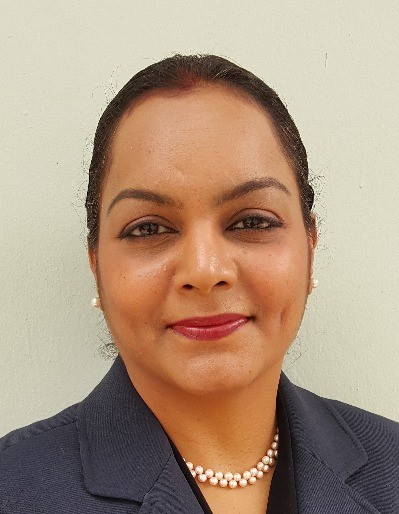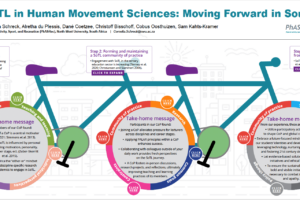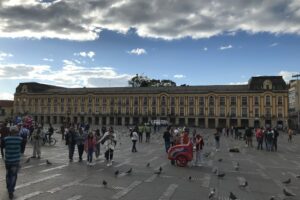ISSOTL 2019 Fellows Spotlight – Nachamma Sockalingam

Nachamma Sockalingam
Founding Program Director of Learning Sciences Lab
Singapore University of Technology and Design (SUTD)
Singapore
What drew you to SoTL?
I think it was a slow and progressive process that evolved over time. It was a mix of self characteristics and my background – nurtured by the community and work environment. It was quite a natural process.
I started out teaching life sciences and was engaged in research work. I was also managing a student capstone module in that polytechnic for final year students, which meant structuring research work for the cohort and helping them in developing research skills. So the interest to conduct research to gain a deeper understanding was always there. I was also very keen to understand how to help students learn better, especially students who were struggling. I realized that I had to take an objective, evidence-based approach in helping students – which starts with understanding their challenges and the learning process.
The switch from the field of life sciences to social sciences (education) gradually happened when I had to start designing problems for problem-based learning. That led me to an action research on “Characteristics of problems in problem-based learning” since not much was known then about what qualifies as a problem. For instance, would an interesting question be a problem? Or can a task be considered as a problem? That eventually that led to my PhD with the then Rector Magnificus of Erasmus University, Rotterdam, Professor Henk Schmidt. So that was my first exposure to SOTL without using the terminology. I am thankful to Professor Henk and Republic Polytechnic colleagues for planting the SOTL seed in me.
In my views, SOTL is applicable in all fields, and it can be called Scholarship of “whatever” field. To me, SOTL resonates with the scientific approach we use in life science research, or experimental learning approaches in teaching and learning, or even design thinking. All these approaches are somewhat related- getting a deeper understanding of the context, developing ideas/hypothesis, implementing, testing, evaluating, sharing with others etc. So SOTL was not completely new – but, it was building on some of my skills and expanding my perspectives.
In my journey to becoming a teacher, we had to attend several training workshops and observe fellow colleagues etc. I found these very helpful. But it was my PhD SOTL project that was the most in-depth and applicable for my own line of work and I could get a better understanding of what works and not. So that made me a firm believer of SOTL.
This then led me to progressing onto faculty development work; moving from self to others and I had the opportunities to introduce SOTL for faculty development at the various universities that I have worked in, such as SIM university, Singapore Management University, and Singapore University of Technology and Design. I would like to thank the various institutions and colleagues.
Fundamentally, SOTL aligns with my belief system, and I have seen the benefits for myself, for teachers and their students, and take SOTL to be a very meaningful endeavour. However, my personal journey in SOTL has not been easy, and I have realised that the systems and processes need to be set up to help others to pursue SOTL – which is what I am currently working on.
What does being an ISSOTL Fellow mean to you?
The ISSOTL Fellowship is an international recognition by peer educators of the ISSOTL fellow for the work done in the field of SOTL as an educational leader. This SOTL work can be at a personal level, university level, national or even international level and is beyond the ISSOTL community and network. The fellowship is indicative of both what has been contributed as an educational leader in SOTL and the potential of the person.
The ISSOTL fellowship is different from an achievement award. The achievement award, in my views, is a recognition of sustained, long terms and regular contributions to the ISSOTL community. Whereas the ISSOTL Fellowship is recognizing an upcoming champion/pioneer/leader. This can be seen from the process of application/selection. For the ISSOTL fellowship, we have to submit a reflective portfolio with supporting reference letters on educational leadership in SOTL. On the other hand, the achievement award is by nomination and selection- especially for the work contributed to the ISSOTL community.
This recognition of the ISSOTL Fellowship (like all recognitions) comes with the responsibility of contributing to an even wider community. The ISSOTL fellowship opens up opportunities for networking and for international SOTL work and leadership.
In a way, the portfolio preparation in itself is a learning opportunity as it requires us to reflect on our personal journey in SOTL as an educator. So the application process is also useful. Hence, I would encourage all interested educators to submit for the ISSOTL fellowship.
At a personal level, while the ISSOTL fellowship is yet to translate to a promotion – I take it that it will come in some form. The external gains are beyond us. We can only focus on what is within our zone of control. The ISSOTL Fellowship has given me opportunities to start up new initiatives. It is after the ISSOTL fellowship that I went onto set up the Singapore University of Technology and Design – Advance Higher Education Programme at my university and also get my AHE Principal Fellowship– which also happens to be Singapore’s first. I know that these efforts have been meaningful for the individual lecturers/faculty members, and also their students, and hence these efforts gives me a sense of purpose.
What advice would you give to ISSOTL members looking to better engage others in SoTL?
First thing is of course to believe in SOTL, to pursue SOTL, to champion SOTL, to work in Communities of Practice and expand beyond. I think it is always helpful to me in a group of like minded people to get and give support and motivate. Working in collaboration with others opens up new avenues and offers support. To collaborate is more powerful than compete. SOTL is all about collaboration – with faculty members, staff members and even students.
I think that the reason for engaging in SOTL (or anything) is also important. While there can be extrinsic motivations, it is the intrinsic motivation that will sustain the efforts, especially when the going gets tough. Fundamental desires to do better, and to understand how students learn so as to help them learn better will help in the long run.
SOTL is not just a tool but it is actually the way/process of teaching and learning. So the key is to enjoy the process of engaging in SOTL. Have fun!




